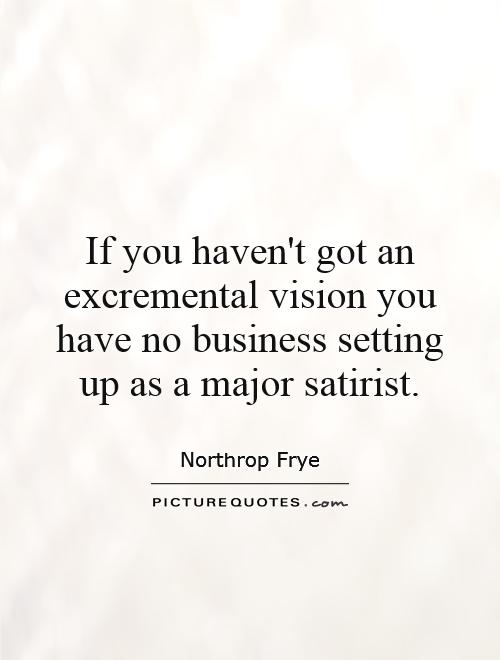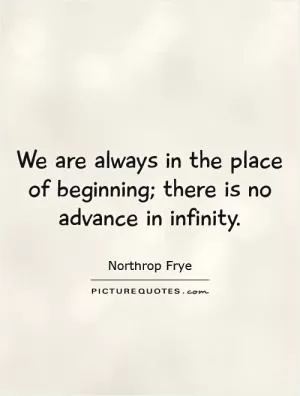If you haven't got an excremental vision you have no business setting up as a major satirist

If you haven't got an excremental vision you have no business setting up as a major satirist
Northrop Frye, a renowned literary critic and theorist, once famously stated, "If you haven't got an excremental vision you have no business setting up as a major satirist." This provocative statement speaks to the idea that in order to be a successful satirist, one must have a deep understanding of the darker, more base aspects of human nature.Frye's assertion can be interpreted in several ways. On one level, it suggests that a satirist must be willing to confront and engage with the less savory aspects of society in order to effectively critique and satirize them. By having an "excremental vision," the satirist is able to see beyond the surface level of things and delve into the messy, unpleasant truths that lie beneath.
Furthermore, Frye's statement can also be seen as a commentary on the nature of satire itself. Satire is a genre that often deals with taboo subjects and pushes the boundaries of what is considered acceptable in society. In order to be a successful satirist, one must be willing to take risks and challenge the status quo. This requires a certain level of fearlessness and a willingness to confront uncomfortable truths.
Additionally, Frye's statement can be seen as a call for authenticity and honesty in satire. In order to effectively critique society, a satirist must be willing to speak truth to power and not shy away from difficult or controversial subject matter. By having an "excremental vision," the satirist is able to see through the facade of polite society and expose the ugliness that lies beneath.
Overall, Frye's statement serves as a reminder of the importance of courage, honesty, and a willingness to confront uncomfortable truths in the pursuit of satire. In order to be a major satirist, one must be willing to embrace the darker aspects of human nature and use them as fuel for their critique of society.












 Friendship Quotes
Friendship Quotes Love Quotes
Love Quotes Life Quotes
Life Quotes Funny Quotes
Funny Quotes Motivational Quotes
Motivational Quotes Inspirational Quotes
Inspirational Quotes